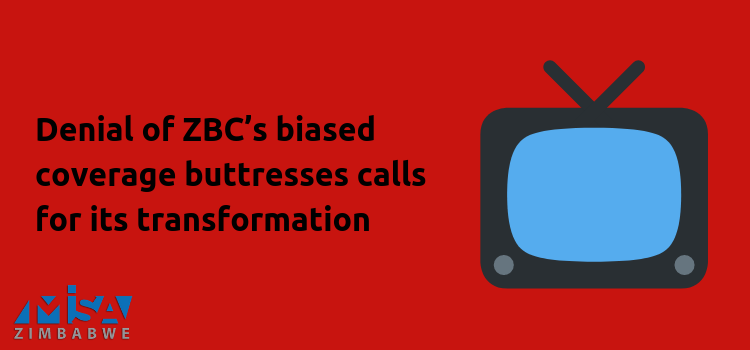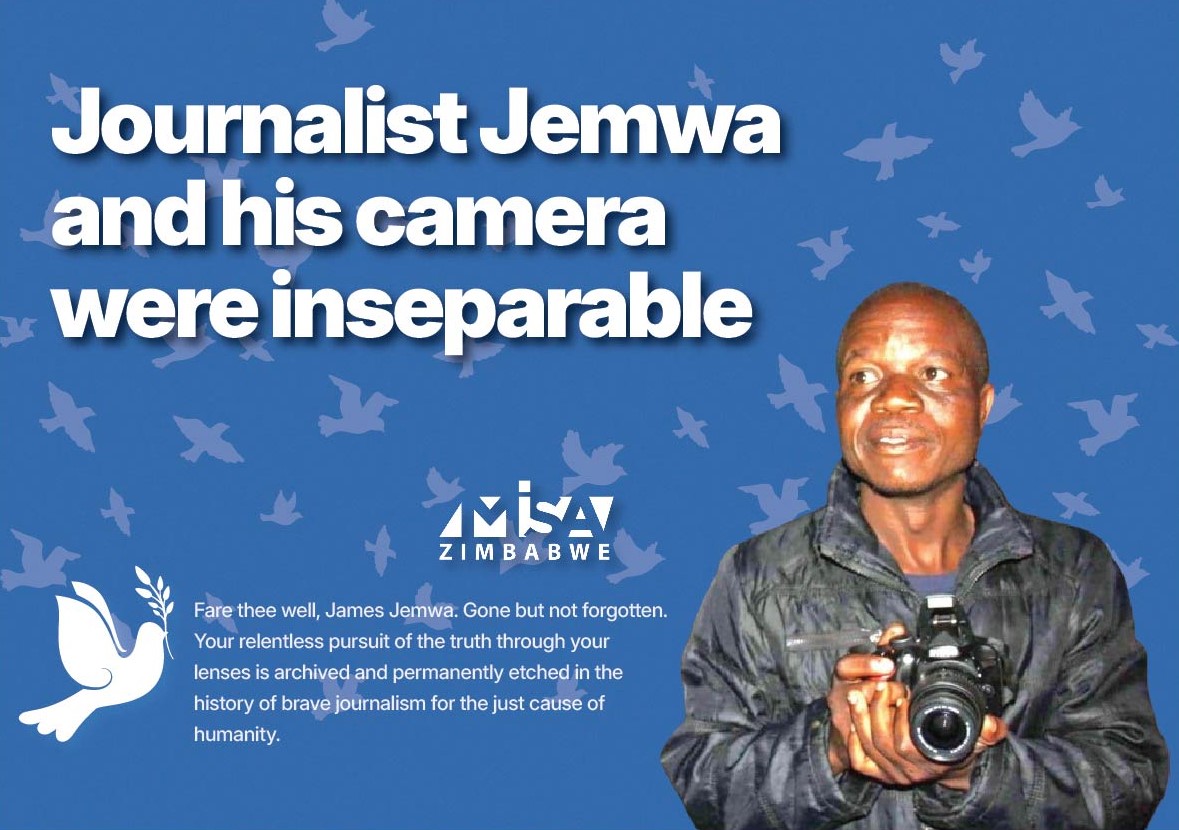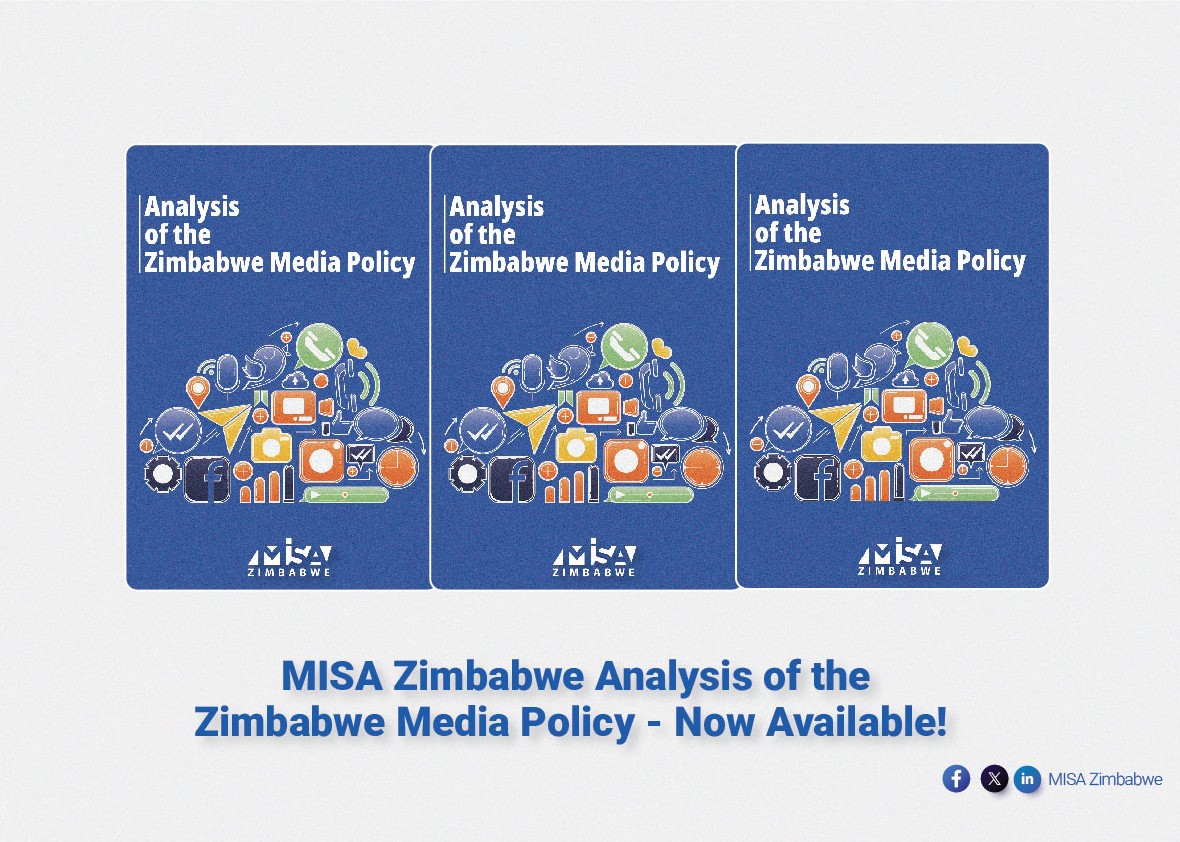The Zimbabwe Broadcasting Corporation (ZBC) on 23 May 2019 denied before the Parliamentary Portfolio Committee on Information, Media and Broadcasting Services that its coverage is biased.
Intriguingly, ZBC chief executive officer, Patrick Mavhura, and head of news and current Affairs, Gilbert Nyambabvu, said it was just a perception that ZBC was biased in its coverage. Mavhura said it was due to such perceptions that some political parties refrained from inviting ZBC to their events because they believed they would not be given fair coverage.
Committee Chairperson Prince Dubeko Sibanda had asked the two to explain what
ZBC has done to deal with the perception that the State broadcaster was biased after several reports by election observer missions adjudged it politically biased in favour of the ruling Zanu PF.
Findings on ZBC’s biased coverage in favour of Zanu PF during the elections were made by the African Union Election Observer Mission (AUEOM), European Union Observer Mission, National Democratic Institute, Common Wealth Observer, Common Market for Eastern and Southern Africa (COMESA) and SADC observer missions, among others.
The AUEOM (in its preliminary report), noted that it had in the past recommended
for measures to be undertaken to guarantee equal access to the state broadcaster to all contestants during elections and for the full implementation of the Broadcasting Services Act (BSA) to ensure balanced and pluralistic media.
Comparing the prevailing broadcasting climate in Zimbabwe during the 2018
election to the 2013 elections, the AUEOM noted that “Regrettably, these recommendations were not implemented. The media environment still remains
largely polarised.”
The observer missions generally noted that the state media (including Zimpapers),
failed to abide by its legal obligations to ensure equitable and fair treatment of all political parties and candidates and was “heavily biased” in favour of the incumbent President (Emmerson Mnangagwa) in their election-related coverage.
The EU election observer mission said: “Furthermore, ZANU-PF and its presidential candidate benefited from extensive additional coverage on ZBC through the news on government achievements and live broadcasting of activities conducted by Emmerson Mnangagwa as Head of State.
“Government-controlled newspapers The Herald, The Chronicle and The Sunday Mail also favoured overtly ZANU-PF by allocating 62.8%, 64.8% and 52.8%, respectively, of their electoral coverage to the ruling party.
“While 54.7% of the reports about ZANU-PF in the three newspapers were presented in a positive tone, 67.1% of the coverage received by MDC-Alliance in the referred publications portrayed the opposition party in a negative tone.”
MISA Zimbabwe is disappointed that ZBC fails to acknowledge these anomalies as an opportunity for them to address the findings and shortcomings identified by observer missions to the 2018 elections. This comes at a time when a Cabinet taskforce has been set up to look into the findings and recommendations with the view to implementing them. However, the information on the progress in this regard remains scarce.
The issue at hand, which Mavhura and Nyambabvu seem to have missed, is not whether ZBC covers or does not cover opposition party activities, but that when it does, its coverage is biased.
It is such denials and intransigence that buttresses and justifies the increasing calls for the transformation of ZBC into a truly independent public broadcaster.
Digitisation
ZBC said by the end of the digitisation programme they would run six additional television channels.
MISA Zimbabwe, however, notes that in its submissions on digitisation, ZBC did not clearly outline how the broadcaster plans to give space to alternative political voices through the six television channels. ZBC is constitutionally mandated to provide fair and balanced coverage to diverse groups in society.
Meanwhile, this means that of the envisaged 24 television channels upon completion of the digitisation process, at least 18 will possibly be licensed to additional players in the broadcasting industry.
MISA Zimbabwe hopes that government will therefore not allocate more than six channels to ZBC when it has outlined in its submissions to Parliament that it is not in a position to run six such channels.
Recommendations
MISA Zimbabwe, therefore, urges ZBC to come up with measures that ensure diverse and impartial coverage of different political parties and other dissenting voices, views, and opinions.













